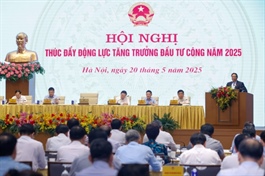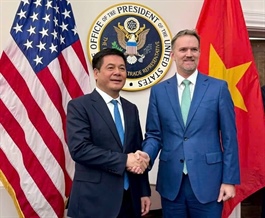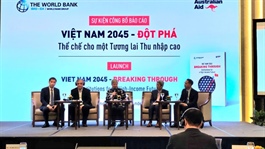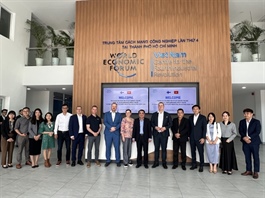Law to distinguish real ownership
Law to distinguish real ownership
Vietnam is set to cover regulations on ltimate beneficial owners in its revised law on enterprises, to make its business and investment more transparent and in line with international practices.
The government last week submitted a draft law amending and supplementing a number of articles of the Law on Enterprises 2020 to the National Assembly (NA).
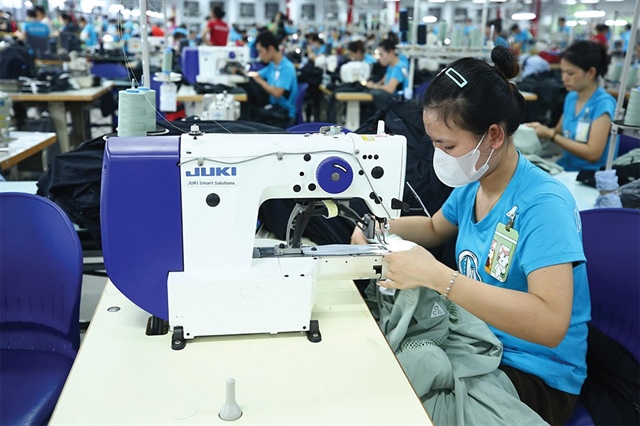
Identifying real and legal company owners is a measure to help prevent fraud, tax evasion, and more, photo Le Toan |
The draft law, which is compiled by the Ministry of Finance and expected to be adopted next month, aims to address shortcomings of the Law on Enterprises 2020, create a favourable and safe investment and business environment for enterprises, and encourage digital transformation.
One of the most important points in the draft law is that for the first time, the concept of “ultimate beneficial owner” (UBO) of enterprises is introduced to enhance transparency in business ownership, meet the Financial Action Task Force (FATF) standards on anti-money laundering, and address Vietnam’s placement on the task force’s grey list.
Under the draft law, the UBO is defined as “an individual who has actual ownership of the charter capital or has the right to control that enterprise, except in cases where the individual exercises the rights and responsibilities of a representative of state ownership according to the law on capital management and investment in enterprises.”
Also according to the draft law, enterprises shall have to “collect, update, and store information on the UBOs; and coordinate with competent state agencies” when requested to identify them.
“Competent state agencies have the right to request the state management agency on business registration and the business registration agency to provide information on the UBOs of enterprises stored on the National Business Registration System for the work of preventing and combating money laundering,” said the draft law.
The government reported that identifying UBOs and providing information about them are important measures to prevent and combat commercial fraud, tax evasion, corruption, money laundering, and terrorist financing.
“Our country has experienced a situation of hidden ownership with many cases of organisations and individuals controlling enterprises with a lack of transparency, abusing their position of controlling enterprises to commit acts of corruption, money laundering, and other violations of the law,” stated Minister of Finance Nguyen Van Thang. “This not only causes damage to investors, partners, customers, and social communities, but also reduces trust, increases risks and negatively affects the development of the business sector and the economy.”
Over many years, the concept of UBOs appeared in Anglo-American law, initially related to trust management, to distinguish it from the legal owner. In short, the legal owner is only the person whose name is on the asset, while the UBO is the real owner and the person who actually controls that asset. The asset can refer to a normal asset, a company, or a financial fund. The agreements between the legal owner and the UBO are private ones that only the two parties know about.
“UBOs can sound strange but actually still exist in Vietnam, through the form of disguised or ‘named for’ investment. This structure covers that asset with a vague legal shell, lacking transparency, at least from the public’s perspective,” wrote Tran Huu Tien and Le Thanh Tam from Global Vietnam Lawyers.
More than 160 countries have applied similar regulations. In Singapore, the UK, Germany or Japan, such information is mandatory in business registration.
A number of National Assembly deputies agreed with the draft law covering UBO regulations. Deputy Le Thu Ha. representing the northern province of Lao Cai, assessed this as an important new point, demonstrating Vietnam’s commitment to preventing and combating money laundering and making business ownership transparent.
However, she also noted that it is necessary to design a reasonable and transparent declaration mechanism, and strongly apply digital transformation to minimise compliance costs for businesses.
“Instead of requiring businesses to declare multiple times, we need to integrate information from existing data systems, such as tax, bank, and population databases, to support verification and examination,” Ha said. “The declaration needs to be clear about the subject, avoiding misunderstandings and causing difficulties for businesses, especially smaller ones. It is necessary to thoroughly review transitional regulations to create maximum convenience for established businesses.”
Deputy Nguyen Thanh Trung representing the northern province of Yen Bai also said that the addition of regulations on UBOs of enterprises will make the market more transparent about the ownership structure.
“When information about the person controlling the enterprise is published, the responsibility of the legal representative and the company’s management board will be enhanced,” Trung said.
Deputy Hoang Duc Thang, representing the central province of Quang Tri, also cited that the draft law stipulates that information on UBOs of enterprises must be kept for at least five years from the time the state management agency decides to dissolve or terminate the operation of the enterprise.
“To ensure feasibility, it is necessary to clearly stipulate that the business registration agency must keep records of UBOs of enterprises. This also makes it favourable for the management agency to handle disputes that arise or to have available data when the enterprises return to the market.”
|
International commitments on UBOs In 2007, Vietnam became a member of the Asia/Pacific Group on Money Laundering, an inter-governmental organisation, consisting of 42 member jurisdictions. Vietnam has participated in the multilateral assessment rounds of the group according to the assessment methodology based on the 40 recommendations of the Financial Action Task Force (FATF). Vietnam was included in the enhanced review process of countries with serious deficiencies of the FATF between March 2022 and March 2023. The country was tasked with overcoming the deficiencies identified in the report, but has not yet met the requirements for improving the legal framework. In a World Bank report released in October 2024, Vietnam’s market entry index ranked 29th out of 50 countries and territories assessed. One of the reasons for this result is that Vietnam does not have regulations on collecting information on ultimate beneficial owners of enterprises, so criteria related to this content were not assessed. In June 2023, the FATF put Vietnam on the Enhanced Monitoring List, or grey list, and asked Vietnam to take corrective actions as specified by the FATF within two years. A country being put on such a list will experience a significant reduction in foreign investment flows into that country (about 7.6 per cent of the country’s total GDP). In addition, financial transactions overseas of financial institutions such as banks, insurance firms, and securities companies in this country will be charged higher fees by other countries, and the transactions will be subject to enhanced scrutiny. Vietnam was warned that if it fails to take measures to improve its implementation of its commitments, the FATF will put Vietnam on the black list. If so, Vietnamese financial institutions will be prohibited from establishing branches or representative offices abroad; branches and subsidiaries of Vietnamese institutions abroad will be subject to increased inspection and supervision; and foreign investment flows into Vietnam may decrease. Source: Government proposal on amending the Law on Enterprises |
- 14:54 23/05/2025








